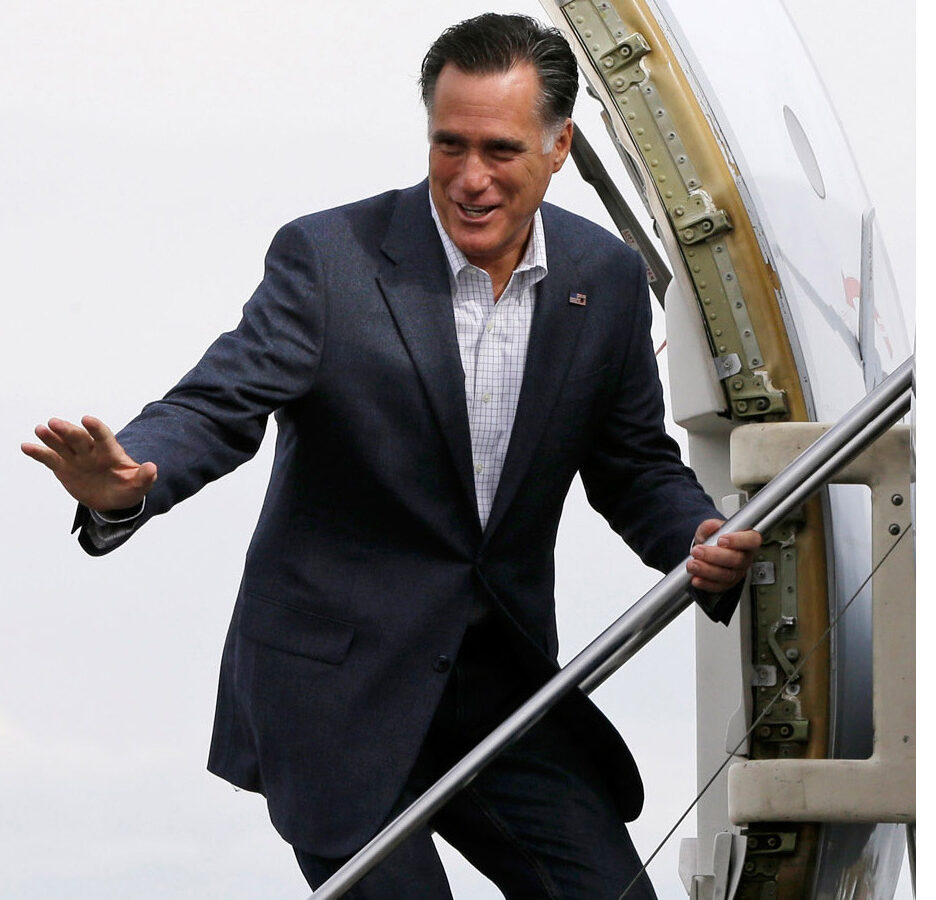
(MintPress) – There’s really not much that separates the U.S. presidential debates from a national beauty pageant. Other than glitzy dresses and the promise of scholarship funding, there are a number of correlations between the two.
Preparing for the corporate-sponsored event includes memorization of scripted questions, of which candidates and their campaign aides are already aware. A team is responsible for choosing a wardrobe that sends the “right” message. Make-up is readily applied. Consultants are on hand to warn candidates what to do — and what not to do. The only thing missing, really, is the swimsuit competition — and Donald Trump.
While it’s understandable to assume candidates spend time preparing for the debate, the degree to which they control the terms of agreement and the extreme rehearsing calls into question the genuineness of the candidates as they step on the stage. Are they really being themselves, or telling the American people what their aides have advised as safe lines?
Pageant preparation
The first debate, set for Wednesday in Denver, Colo., has prompted both candidates to enter preparation mode.
President Barack Obama this week is breaking from Washington to clear his mind and help focus in Nevada for the upcoming duel with Republican presidential nominee Mitt Romney. His campaign is even flying in Sen. John Kerry, D-Mass., for a little role playing, as he’ll act on behalf of Romney in rehearsals with Obama.
According to the Washington Post, Obama and his top advisors are laying low for three days in Henderson, Nev., a small suburb roughly 20 miles outside of Los Vegas. The obscure location isn’t well known — and that’s the exact reason the campaign chose it. It’s secluded and gives the president a pause from the madness of the campaign trail.
Meanwhile, Romney’s campaign is focusing much of its attention on foreign policy at the moment — a move pundits claimed was intended to stray Americans’ thoughts away from the candidate’s remarks caught on camera, in which he claimed 47 percent of Americans were dependent on the government.
It’s that very topic that is likely to come up at the debates Wednesday, and Romney advisor Ed Gillespie said the campaign is preparing for that exact issue, according to the Associated Press.
Sen. John McCain, R-Ariz., knows how the game is played, having been in the race just four years ago. The longtime senator told CNN he expects a record viewing audience for the first round of debates.
Last year, his stand-off against Obama garnered an estimated 52.4 million viewers. And while there’s plenty of anticipation going into this debate season, McCain says both candidates are far too well prepared for any real surprises to emerge as a result.
“I can’t remember the last time there was one of these comments that grabbed everybody’s attention because, frankly, the candidates are too well prepared,” he said. “They’re well-scripted.”
Round 1: Domestic policy
The Commission on Presidential Debates released the first round of topics Sept. 19. The organization, set up collectively by the Republican and Democrat parties in 1987, chose domestic policy as the first round of topics. Within that category, candidates will be quizzed on the economy, health care, the role of government and governing.
Each segment is given 15 minutes and will be moderated by Jim Lehrer.
What you won’t find at the debates are open dialogue between the candidates, regardless of how often Obama and Romney attempt to define the debates as a meaningful conversation between the two.
“What I’m most concerned about is having a serious discussion about what we need to do to keep the country growing and restore security to hard-working Americans,” Obama said at a Las Vegas campaign rally Sunday. “That is what people are going to be listening for. That’s the debate you deserve.”
While Obama may claim he’s looking for a discussion, the rules of the game are set up to be anything but that. Typically, moderators present a question and often a specific slot of time for answers and rebuttals. But, really, at no point the candidates speak directly to one another, without the referee calling the shots.
When it comes to the actual terms of agreements of the upcoming debates, the general public is out-of-the-know, along with the media. More than a dozen watchdog organizations, including Open Debates, called for the release of the Commission on Presidential Debates contract, signed by both candidates, but were denied such requests.
“The Commission on Presidential Debates undermines our democracy,” Open Debates CEO George Farah said in a press release. “Because of the Commission’s subservience to the Republican and Democratic campaigns, the presidential debates are structured to accommodate the wishes of risk-averse candidates, not voters.”
In that same press release, Open Debates points out that past contracts (2004), which have since been released, show “anti-democratic provisions,” including those governing that candidates are not allowed to directly ask one another questions.
The 2004 contract also included the agreement that all questions from the public must first be approved by the given moderator. It also excluded candidates from appearing at any other type of open forum relating to their presidential bid.
What’s the point?
While the questions may be predictable and the candidates anything but candid, the debates do allow U.S. citizens to take a look at Obama and Romney side-by-side.
In an atmosphere that includes political talking heads and a political game of “he-said, he-said,” the way in which candidates present their viewpoints and arguments will be on stage for the nation to listen to and compare.
So long as American voters recognize the fact that neither Obama and Romney will be caught off-guard or really challenged to explore an issue they haven’t already voiced their opinions on, it could serve as a grand starting point for American voters who have tuned politics out up to this point.


